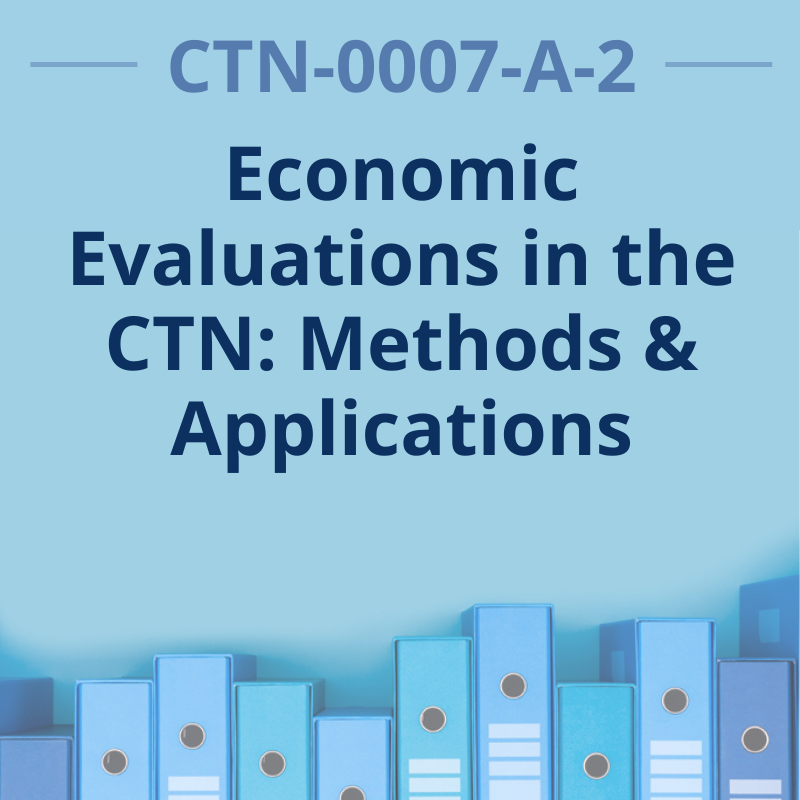CTN-0007-A-2: Economic Evaluations in the CTN — Methods & Applications

Jody Sindelar, PhD
Lead Investigator
Division of Health Policy & Administration
Yale School of Public Health
jody.sindelar@yale.edu
Abstinence-based incentives have been shown to improve treatment outcomes over usual care alone in community-based drug abuse treatment programs, but their cost-effectiveness has not been examined. Economic analyses of cost-effectiveness are clinically important, as even if abstinence-based incentives are shown to be effective, they may have limited adoption within community-based treatment programs unless they are also shown to be cost-effective. Therefore, we undertook an economic study of multi-site CTN clinical trials that used to evaluate cost-effectiveness.
Primary Findings
In both methadone-maintenance clinics and counseling-based drug-free clinics, abstinence-based incentives provided better treatment outcomes than usual care, but required additional costs. Compared to usual care in counseling-based drug-free clinics, the incremental cost of using abstinence-based incentives to lengthen the longest duration of continuous stimulant and alcohol abstinence by 1 week was $258, and to obtain an additional stimulant-free urine sample was $146. Compared to usual care in methadone-maintenance clinics, the incremental cost of using abstinence-based incentives to lengthen the longest duration of continuous stimulant and alcohol abstinence by 1 week was $141, and to obtain an additional stimulant-free urine sample was $70. Adding abstinence-based incentives to usual care was more cost-effective in methadone-maintenance clinics than in counseling-based drug-free clinics. Empirical analyses are needed to help policy makers decide whether abstinence-based incentives are worth the extra expense.

Results Articles:
Olmstead TA, et al. Clinic variation in the cost-effectiveness of contingency management. American Journal on the Addictions 2007;16(6):457-460. [get article]
Sindelar JL, et al. Cost-effectiveness of prize-based contingency management in methadone maintenance treatment programs. Addiction 2007;102(9):1463-1471. [get article]
Olmstead TA, et al. Cost-effectiveness of prize-based incentives for stimulant abusers in outpatient psychosocial treatment programs. Drug and Alcohol Dependence 2007;87(2/3):175-182. [get article]
Related Studies
- CTN-0006: Motivational Incentives for Enhanced Drug Abuse Recovery: Drug Free Clinics
- CTN-0007: Motivational Incentives for Enhanced Drug Abuse Recovery: Methadone Clinics
- CTN-0007-A-1: Survey of Counselors’ Perceptions of Incentive Programs
Related Resources